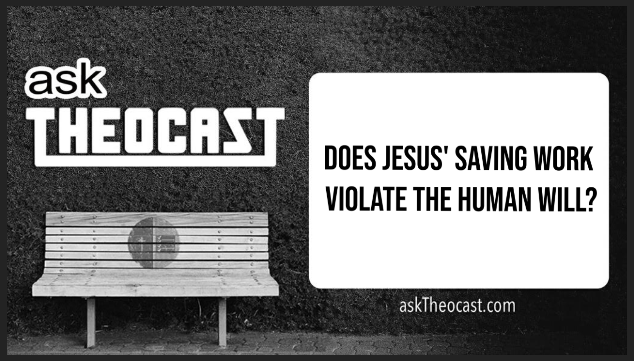


Does Jesus’ Saving Work Violate the Human Will? Answered by Justin Perdue
Hey, what’s up? This is Justin. Today, I am answering a question submitted by Isaiah. He asks, “Does Jesus’s saving work violate the human will?” It’s a good question. In order to begin to answer that, we might want to first consider what the Bible says about human beings in a general sense and our wills in particular.
So the Bible is clear that humans are responsible moral agents. We make choices that matter. We choose between good and bad and right and wrong, and we are absolutely culpable for the decisions that we make, the ways that we act, the ways that we think, and the ways that we feel. Scripture could not be more clear about all of that, and at the same time, the Bible is also clear that we are not exactly free in the ways that we tend to think that we are.
Not only is Satan real, the one the Bible calls the prince of the power of the air, who is at work in all the sons of disobedience, but Satan exercises a kind of dominion over fallen men. Not only that, but we are also born, through Adam and Eve, with a nature that has been fundamentally corrupted and bent toward evil. So our flesh, our fallen nature, naturally desires things that are wicked. We crave things that do not honor and please God, and these desires and these cravings just happen. It’s not something that we necessarily sign up for, and so it’s important that we understand that our wills, in that sense, have never been, in our experience, free. It is not as though we can equally choose between good and evil. We are in bondage at birth and we are born into that bondage to Satan, and to sin, and the desires and cravings of our flesh. It is not as though human beings can walk around and make decisions that are completely free. In one sense we are always being acted upon by Satan, and even the corruption of our flesh affects and influences every decision that we make, and every thought that we have, and every feeling that we feel.
What God does in his work of redemption through his Son, Jesus Christ, is he shows up and, not so much in a violation of the human will, acts in such a way where he inhabits and liberates our will. So, when we come to Christ in faith, we are doing what we want to do. We don’t know everything at that moment when we decide to follow Jesus, which is an entirely appropriate thing to say. We make decisions to follow Christ, and underneath our decisions to follow Jesus is something that God has done for us. When we make that choice, when we trust in Jesus, we don’t know everything, but we know that we need Christ and that he is the one who we can trust and the one that we need to atone for our sin and to provide us with righteousness. We joyfully run to him and cast ourselves upon the mercy of God in him.
This is the witness of scripture, and this is the testimony of every Christian: that I was blind and now I see, I was in darkness and now I am in light, I was lost and now I’m found, I was dead and now I’m alive. So, it’s important that we would understand that the human will is never entirely free in a place that is neutral, where we can equally choose good or evil, but because we are born bound to Satan and to sin, God comes in and sets us free. He inhabits and liberates our wills so that we might repent of sin and trust in Christ. It is a very good and gracious thing that God does for us, and I do not think that we should consider that to be a violation of our wills.
I hope this is a helpful answer to your question, Isaiah, and I hope it’s helpful to the listener. Continue to send us your questions over at asktheocast.com.
Deepen your understanding of Reformed theology and strengthen your faith with our weekly book recommendations.